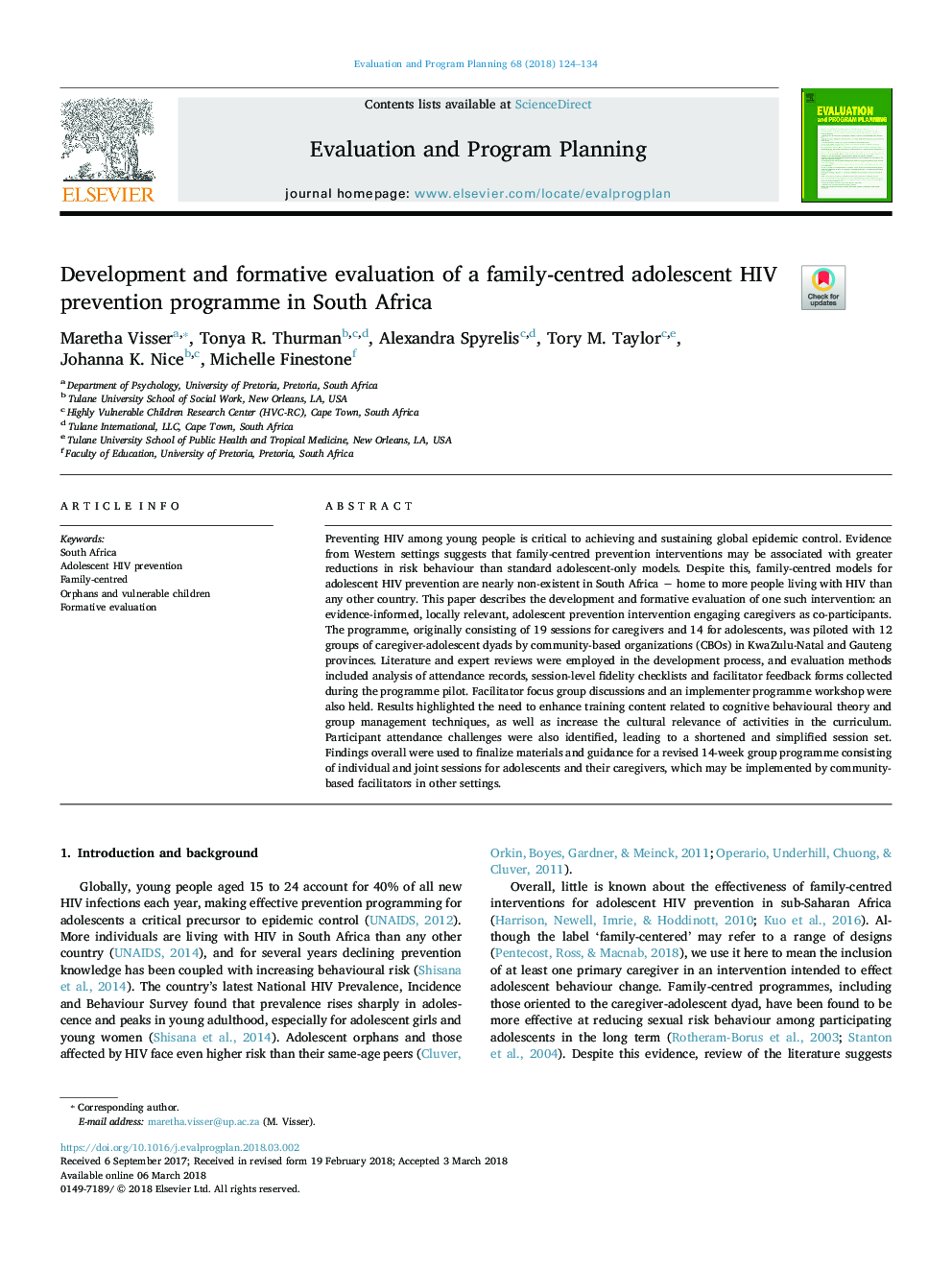| Article ID | Journal | Published Year | Pages | File Type |
|---|---|---|---|---|
| 6792335 | Evaluation and Program Planning | 2018 | 11 Pages |
Abstract
Preventing HIV among young people is critical to achieving and sustaining global epidemic control. Evidence from Western settings suggests that family-centred prevention interventions may be associated with greater reductions in risk behaviour than standard adolescent-only models. Despite this, family-centred models for adolescent HIV prevention are nearly non-existent in South Africa â home to more people living with HIV than any other country. This paper describes the development and formative evaluation of one such intervention: an evidence-informed, locally relevant, adolescent prevention intervention engaging caregivers as co-participants. The programme, originally consisting of 19 sessions for caregivers and 14 for adolescents, was piloted with 12 groups of caregiver-adolescent dyads by community-based organizations (CBOs) in KwaZulu-Natal and Gauteng provinces. Literature and expert reviews were employed in the development process, and evaluation methods included analysis of attendance records, session-level fidelity checklists and facilitator feedback forms collected during the programme pilot. Facilitator focus group discussions and an implementer programme workshop were also held. Results highlighted the need to enhance training content related to cognitive behavioural theory and group management techniques, as well as increase the cultural relevance of activities in the curriculum. Participant attendance challenges were also identified, leading to a shortened and simplified session set. Findings overall were used to finalize materials and guidance for a revised 14-week group programme consisting of individual and joint sessions for adolescents and their caregivers, which may be implemented by community-based facilitators in other settings.
Related Topics
Health Sciences
Medicine and Dentistry
Public Health and Health Policy
Authors
Maretha Visser, Tonya R. Thurman, Alexandra Spyrelis, Tory M. Taylor, Johanna K. Nice, Michelle Finestone,
